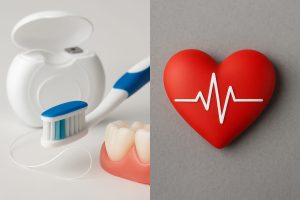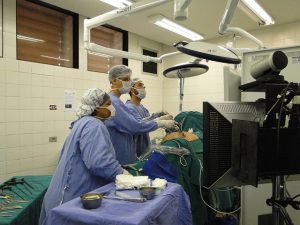
Stress is often called the silent killer. It’s one of the leading contributors to heart disease, the number one cause of death worldwide. Emotional well-being, or lack thereof, significantly impacts our heart health. Stress, anxiety, and negative emotions can lead to increased blood pressure, inflammation, and other cardiovascular issues. But there’s good news: spiritual practices like prayer, meditation, and yoga can offer powerful tools for reducing stress and promoting a healthier heart.
The Connection Between Stress and Heart Health
When stress arises, our bodies release hormones such as cortisol and adrenaline. These chemicals prime us for a ‘fight or flight’ reaction, elevating heart rate and blood pressure. While this acute response serves a purpose, chronic stress can have detrimental effects, including high blood pressure, inflammation in the arteries, and other heart-related complications.
Studies have shown that individuals with high levels of stress and anxiety are at greater risk of developing cardiovascular diseases. Emotional well-being, therefore, isn’t just a mental health concern; it’s a critical aspect of physical health, especially for the heart.
READ ALSO: Signs of Heart attack in Women
Spiritual Practices for Heart Health
Spiritual practices offer a holistic approach to managing stress and improving emotional well-being. Let’s explore how some of these practices can benefit your heart:
Meditation
Meditation is a practice that encourages mindfulness and self-awareness. It involves focusing your mind on a particular thought, object, or activity to train attention and awareness. Research has shown that meditation can reduce stress, lower blood pressure, and decrease the risk of heart disease.
One comprehensive resource on the benefits of meditation and other spiritual practices is “Matrice del Destino: La Guida Completa di Serena Leone,” translated to “Matrix of Destiny: The Complete Guide by Serena Leone.” This guide offers insights into various spiritual practices, helping individuals find the most suitable methods for their well-being.
Prayer
For many, prayer is a form of communication with a higher power. It provides a sense of comfort and connection, which can be particularly beneficial during stressful times. Prayer can help reduce anxiety and provide a sense of peace, which can lower blood pressure and improve heart health.
Yoga
Yoga combines physical postures, breathing exercises, and meditation. It’s an ancient practice that promotes relaxation and mental clarity. Yoga has been found to reduce stress hormones, lower blood pressure, and improve heart rate variability. These benefits make it an excellent practice for maintaining a healthy heart.
Tips for Incorporating Spiritual Practices into Daily Routines
Incorporating spiritual practices into your daily life doesn’t have to be challenging. Here are some practical tips:
- Start Small: Start with brief meditation or prayer sessions, even if they last just five minutes daily. Over time, gradually extend the duration as you feel more at ease.
- Create a Routine: Set aside a specific time each day for your practice. Consistency is key to reaping the benefits.
- Find a Quiet Space: Choose a quiet, comfortable place where you won’t be disturbed. This can help you focus and relax more effectively.
- Join a Community: If possible, join a meditation or yoga class. Being part of a community can provide additional support and motivation.
- Be Patient: It takes time to develop a new habit. Be patient with yourself, and remember that every little bit helps.
Conclusion
Spiritual practices like meditation, prayer, and yoga offer valuable tools for managing stress and promoting heart health. These practices can reduce anxiety, lower blood pressure, and improve overall emotional well-being. By incorporating them into your daily routine, you can take a significant step towards a healthier heart and a more balanced life.
The heart is more than just a physical organ; it’s also the center of our emotional and spiritual well-being. Taking care of your heart involves nurturing all these aspects. Whether through a simple prayer, a quiet moment of meditation, or a yoga session, spiritual practices can be a powerful ally in your journey to better health.




 When most people think about brushing and flossing, they focus on keeping their teeth white and their breath fresh. But good oral hygiene does much more than protect your smile. Studies confirm that oral health is closely
When most people think about brushing and flossing, they focus on keeping their teeth white and their breath fresh. But good oral hygiene does much more than protect your smile. Studies confirm that oral health is closely  Psychiatrists diagnose and treat the underlying causes of stress—such as anxiety, depression, or unresolved trauma.
Psychiatrists diagnose and treat the underlying causes of stress—such as anxiety, depression, or unresolved trauma.
 Feeling out of breath, as if you’ve just finished a marathon, can happen with or without chest discomfort.
Feeling out of breath, as if you’ve just finished a marathon, can happen with or without chest discomfort. To clean your lungs and remove pollutants, your brain tells you to cough. We cough to ease symptoms by constricting our chest and lungs.
To clean your lungs and remove pollutants, your brain tells you to cough. We cough to ease symptoms by constricting our chest and lungs.














 Male sexual enhancement pills that could likely be recommended by the urologist for man health are the supplements that have been clinically proven effective in increasing blood flow. Certain conditions such as stress, lack of sleep and unhealthy diets could result in poor blood circulation. In such cases, a man produces less testosterone, which in turn slows down his sex drive or desire for sexual engagements.
Male sexual enhancement pills that could likely be recommended by the urologist for man health are the supplements that have been clinically proven effective in increasing blood flow. Certain conditions such as stress, lack of sleep and unhealthy diets could result in poor blood circulation. In such cases, a man produces less testosterone, which in turn slows down his sex drive or desire for sexual engagements. Urologists recommend medications that can heighten the effects of naturally occurring nitric oxide that relax the muscles of the male reproductive organ during sexual arousal. Common ED medications generically known as sildenafil and tadalafil contain active nitric oxide ingredients that work to relax the penile muscles. Doing so allows increased blood flow in order to sustain the erection of the male organ.
Urologists recommend medications that can heighten the effects of naturally occurring nitric oxide that relax the muscles of the male reproductive organ during sexual arousal. Common ED medications generically known as sildenafil and tadalafil contain active nitric oxide ingredients that work to relax the penile muscles. Doing so allows increased blood flow in order to sustain the erection of the male organ.
 When asked about the most significant ways to have radiant skin, experts recommended laser treatments and chemical peels. Because they hasten the skin’s cell turnover, chemical peels are an excellent method to attain radiant skin.
When asked about the most significant ways to have radiant skin, experts recommended laser treatments and chemical peels. Because they hasten the skin’s cell turnover, chemical peels are an excellent method to attain radiant skin.
 Your cardiac physician and the person applying for PRP should know about your condition and the medications you take.
Your cardiac physician and the person applying for PRP should know about your condition and the medications you take.
